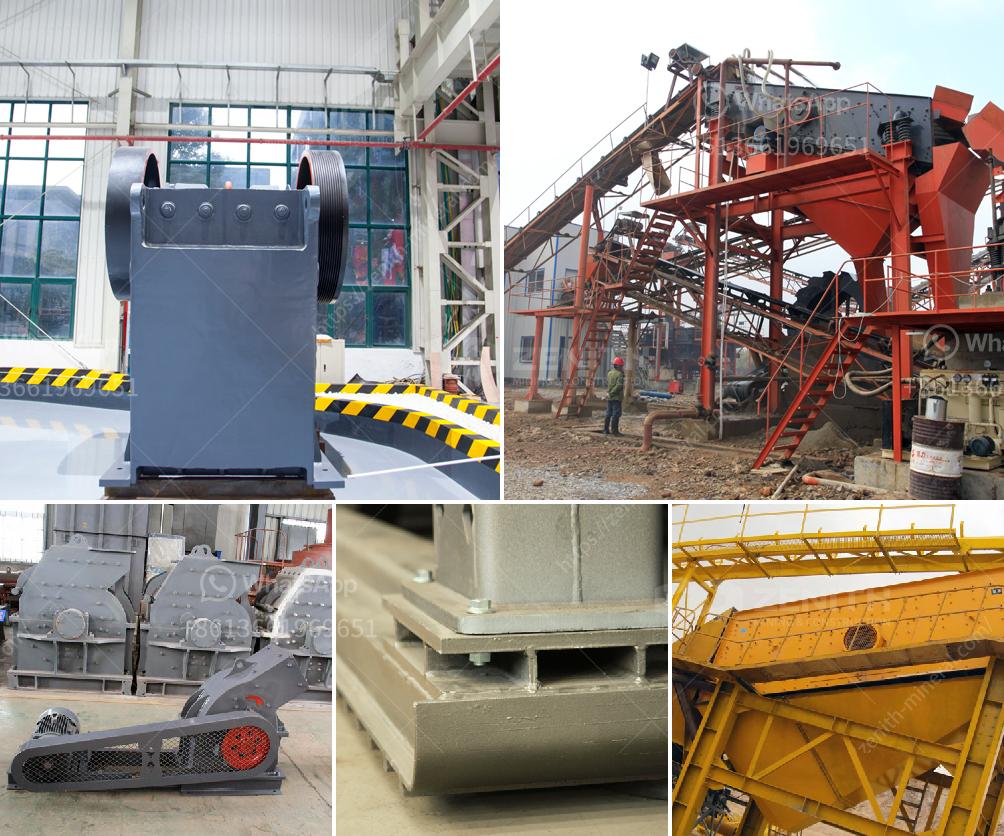The primary differences between a hydraulic cone crusher and a spring cone crusher lie in their design, operation, and the way they handle materials. Here’s a detailed comparison:
1. Design and Structure
-
Hydraulic Cone Crusher:
- Hydraulic System: This type of crusher uses a hydraulic system to adjust the crusher settings and release the crushing chamber. The hydraulic system provides a more precise and efficient way to control the crusher's operation.
- Components: It typically includes a hydraulic motor, hydraulic pump, and hydraulic cylinders. These components work together to provide smooth and controlled adjustments.
- Automation: Hydraulic cone crushers often come with advanced automation features, allowing for remote monitoring and control.
-
Spring Cone Crusher:
- Spring System: This crusher uses a spring mechanism to adjust the crusher settings and release the crushing chamber. The springs provide the necessary force to crush the materials.
- Components: It includes a set of springs, a frame, and a crushing chamber. The springs are used to provide the necessary tension and force.
- Manual Adjustments: Adjustments are typically made manually, which can be less precise and more time-consuming compared to hydraulic systems.
2. Operation and Performance
-
Hydraulic Cone Crusher:
- Efficiency: Hydraulic cone crushers are generally more efficient and can handle a higher capacity of materials. The hydraulic system allows for continuous and consistent crushing.
- Precision: The hydraulic system provides more precise control over the crusher settings, leading to better product quality and uniformity.
- Safety: The hydraulic system can quickly release the crushing chamber in case of an overload, reducing the risk of damage to the crusher and ensuring safety.
-
Spring Cone Crusher:
- Efficiency: Spring cone crushers are generally less efficient compared to hydraulic cone crushers. They may not handle as high a capacity of materials.
- Precision: The manual adjustment mechanism can lead to less precise control over the crusher settings, potentially affecting product quality.
- Safety: The spring system can release the crushing chamber in case of an overload, but it may not be as quick or efficient as the hydraulic system.
3. Maintenance and Durability
-
Hydraulic Cone Crusher:
- Maintenance: Hydraulic systems require regular maintenance to ensure proper functioning. This includes checking the hydraulic fluid levels, inspecting the hydraulic components, and ensuring there are no leaks.
- Durability: Hydraulic cone crushers are generally more durable and can handle more demanding crushing applications. The hydraulic system provides better protection against wear and tear.
-
Spring Cone Crusher:
- Maintenance: Spring systems also require maintenance, but it may be less frequent compared to hydraulic systems. This includes checking the springs for wear and ensuring they are properly tensioned.
- Durability: Spring cone crushers may be less durable compared to hydraulic cone crushers, especially in demanding applications. The springs can wear out over time and may need to be replaced.
4. Cost and Investment
-
Hydraulic Cone Crusher:
- Initial Cost: Hydraulic cone crushers are generally more expensive to purchase due to the advanced hydraulic system and automation features.
- Long-term Investment: The higher initial cost can be offset by the increased efficiency, better product quality, and reduced maintenance costs over time.
-
Spring Cone Crusher:
- Initial Cost: Spring cone crushers are generally less expensive to purchase compared to hydraulic cone crushers.
- Long-term Investment: While the initial cost is lower, the potential for less efficiency, lower product quality, and higher maintenance costs may affect the long-term investment.
Conclusion
In summary, hydraulic cone crushers offer more precise control, higher efficiency, better safety features, and potentially lower long-term maintenance costs. They are suitable for more demanding applications and can handle higher capacities. On the other hand, spring cone crushers are less expensive initially and may be suitable for less demanding applications, but they may require more manual adjustments and maintenance over time. The choice between the two will depend on the specific requirements of the crushing application, budget, and desired product quality.

